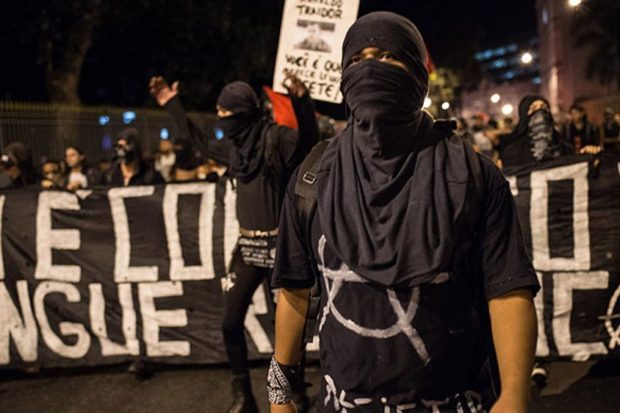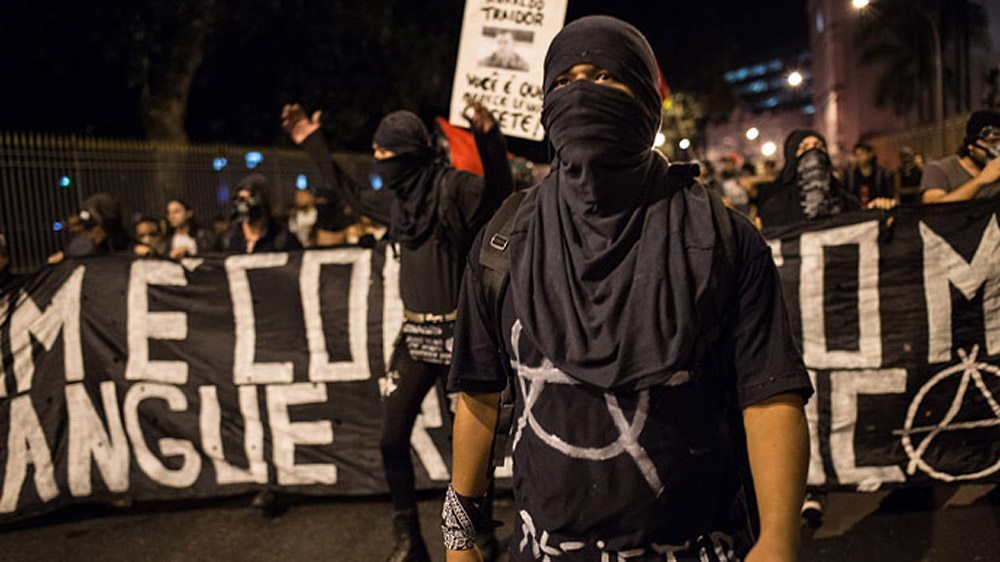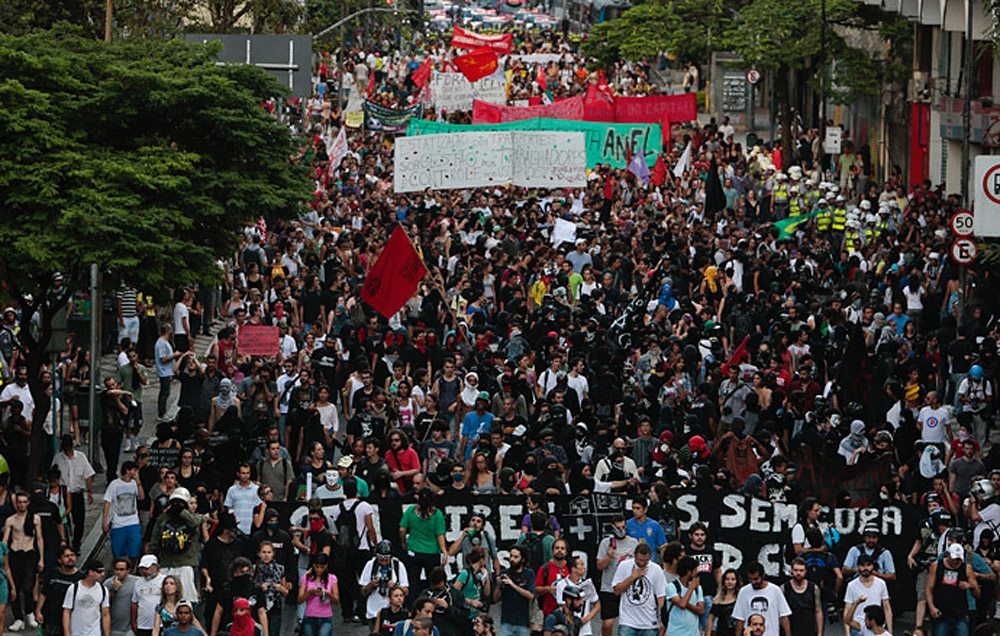
By Anthony Bencomo

As the World Cup approaches and soccer fans grow with anticipation, Brazil’s poorest citizens are faced with the realities of a militarized neighborhood. Similar to what happened during the 1968 Olympics in Mexico City, protestors are being beaten down, and citizens are being forced out of their homes to make way for the global spotlight that will come with the World Cup.
For those unfamiliar with the massacre in Tlatelolco Plaza, the Mexican military fired on a large gathering of citizens who were protesting the huge sums of money spent on the 1968 Olympics in Mexico City. Various estimates range as to how many people were murdered on that day, but estimates range from the hundreds to the thousands.
There are parallels to the situation currently brewing in Brazil. In a two-year period, Brazil will host both the World Cup and the Olympics. This has resulted in much of the nation’s money and attention going to building stadiums and hotels rather than schools or public housing. Protestors who oppose this misappropriation of funds are sprayed with tear gas and suppressed in order for Brazil to make a positive image on the world stage. A climate of fear is currently being pushed with one study by Amnesty International stating that “80% of Brazilians fear being tortured by the police.”
Part of the irony, of course, stems from the fact that the current president, Dilma Rouseff, is a member of the leftist party and a former Marxist who was once even arrested for opposing the military regime of Brazil. She is supposed to be on the side of the masses and the ordinary people, but her agenda and effort to please the world is destroying this notion. Rouseff has defended Brazil’s hosting of the World Cup despite the estimated $11 billion spent on the preparations. This illustrates that power dynamics can alter one’s perception and shows that the problems in Brazil are systemic.

Protestors have received only a small part of the blunt force of the police. The government has sent the military into poor favelas in order to both make the tourists feel safer and conceal the living conditions of the citizens. Finally, after many years of being ignored by the Brazilian government, the poorest citizens are receiving national attention, not in the way they had hoped for, but rather soldiers are being placed into these areas to “safeguard” tourists from the indigenous population. Acting as a militarized police force, the army has set up checkpoints for people entering the neighborhood and is evicting thousands of people from their homes to protect the tourists and to make room for infrastructural changes for roads and stadiums.
There have been examples where the poor have been forced to move out of their homes to make room for hotels and roads. Citizens are being forcibly evicted from their homes and are becoming displaced. Similar to Native Americans in the past being forced off of their land or the gentrification presently occurring in Brooklyn in the area surrounding Barclays Center, both economic and physical persuasion are being utilized to make room for the World Cup. In Brazil, the residents attempt to voice the fact that they are not compensated or are sent to distant areas from the place where they once lived.
I try not to exaggerate the conditions, but the situation is eerily reminiscent of the early stages of notable atrocities as the residents are being treated as others and being displaced from their homes in the name of “progress.” This is no less than state terrorism against an oppressed group as the dominant group portrays the oppressed group as a threat to both people and society. Reports of beatings and torture are coming to light, but one of the largest consequences is the terror instilled in the population. The state is the terrorist and similar to Tlatelolco Square in 1968, it has the potential to evolve into something deadlier.
*****
Anthony Bencomo was born and raised in Fresno and is a recent graduate of Fresno State. Contact him at bencomo.anthony@yahoo.com.
